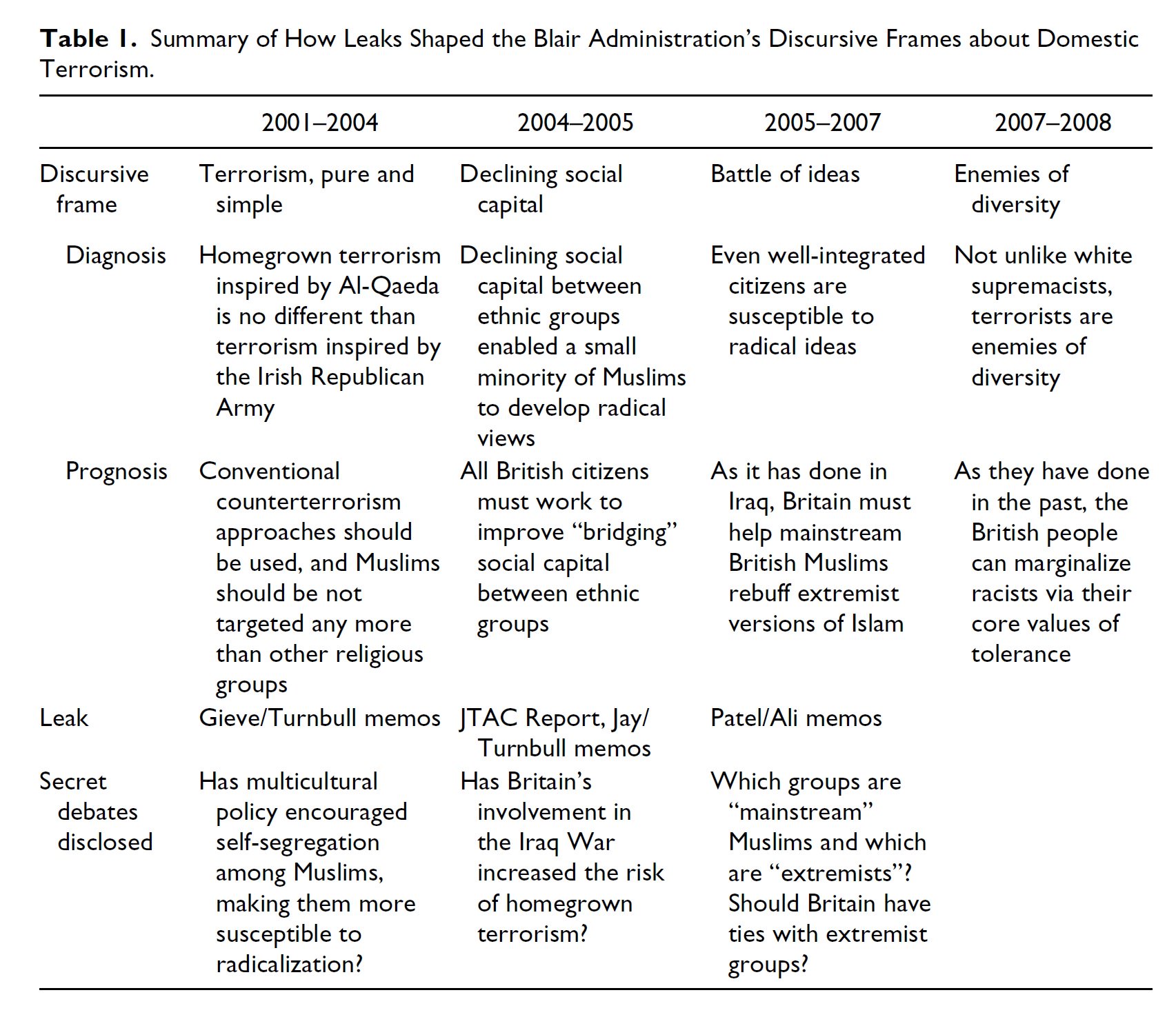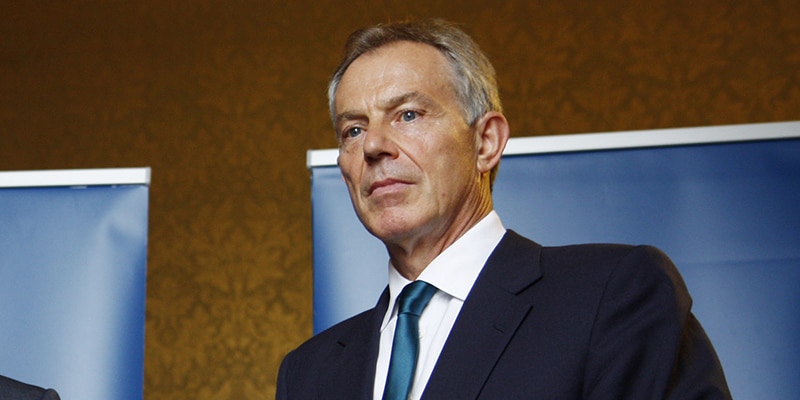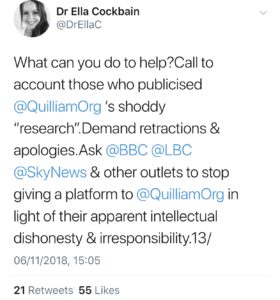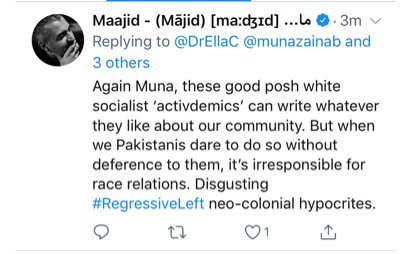Salaam
Another update
CAGE is having a huge impact on the PREVENT and CVE lobbies who seek to silence us – here’s why
Recently, former Prime Minister turned political “consultant” Tony Blair said that the UK needed to engage in a “battle of ideas” against groups who were undermining the PREVENT strategy.
In lieu of these comments, I thought this was an ideal time to pen an article of my recent experience at a Countering Violent Extremism (CVE) symposium.
CVE is the name given to programmes that follow the pattern and policy of PREVENT, except it applies on a global stage. There are CVE programmes being developed and implemented around the world. Many governments, academic institutions and private businesses are putting forth their ideas on how to supposedly stop the cycle of violence through countering “extremism”.
Not having an accepted legal definition of “extremism” has done little to stop government efforts to promote PREVENT and CVE programmes. I do not believe there can be a workable definition of “extremism” since the term itself is highly subjective.
The fact that PREVENT and its vague notion of “extremism” have now been exported globally is deeply concerning.
Like PREVENT, CVE in essence gives governments around the world (some of whom are hostile towards Islam), the power to decide what is “extremism” when it comes to Islam and Muslims, and what is not, depending on how it perceives “threat”.
The UK has in a sense delivered to many despotic governments a startling – and profitable – method of control, the result being a growing CVE sector that has alarmed even the UN.
I attended this symposium to understand and debate CVE and its effects. Over those two days, I listened to presentations and speeches from the Ministry of Defence, the Home Office, police force, intelligence services, private military contractors, academics and non-governmental organisations.
On this occasion it was useful to have CAGE there as a counter point to the ideas that these individuals and groups, who had much to gain financially from the CVE sector, were putting forward. Also such meetings give a deeper insight into the development of this sector and as a leading voice calling for an end to these policies, we must remain informed.
I was asked to leave because people felt uncomfortable talking in front of CAGE
At lunchtime on the first day of the conference, I was asked to leave the symposium by the convenor. When I queried as to why, the convenor said some of the the panelists had reservations about speaking in front of me, based on the organisation I work for.
I was even told to stop “fastidiously taking notes”, despite the fact we were all there to learn, discuss and debate.
Why did they want me to leave? Were they fearful that their ideas would not hold up to scrutiny?
I explained to the convenor that I was not prepared to leave because we were there to discuss how to stop the cycle of violence and CAGE had much to give in terms of a critical discussion on the issues at hand, otherwise it would be a disingenuous, one-sided affair.
This attempt to silence CAGE is something which we continually face. CAGE has been upfront in its call to end PREVENT since its inception, and we will continue to do so.
PREVENT is a flawed programme which alienates the Muslim community and it is also an affront to due process and therefore is a long term a threat to society itself.
That PREVENT is now being extended globally in the form of CVE, means that those who critique it, including us, have not been adequately heard on the global stage, especially by Muslim organisations and charities.
It is even more concerning that to other organisations, in countries around the world where the civil society sector is nowhere near as strong as the UK, PREVENT is being touted as an unparalleled success.
But in my role as senior caseworker at CAGE, I see firsthand the negative impact PREVENT is having on families.
Whether it’s “Yusra” who went through a three year ordeal to keep her children because of PREVENT, leading to her having a heart attack, or “Ghada” who was was temporarily taken into care leading to a deterioration in her physical and mental health, and long term issues in her family – the impact of PREVENT involvement in families and in young peoples’ lives has been traumatic and counter-productive.
A gathering of people who single out Islam as a problem
But why was CAGE asked to leave?
It was apparent throughout the two days that most of the arguments presented provided a lopsided view in favour of CVE. There was no discussion as to whether CVE programmes should exist in the first place.
Rather, everyone assumed that CVE models needed to exist to combat the threat of violence, despite there being a body of academic research which questioned the effectiveness and efficacy of CVE models.
The focuses of the presentations were overwhelmingly on Muslims and on violence allegedly committed by Muslims.
I informed those in the room that the focus on Muslims by the government is based on media perception rather than empirical evidence. I highlighted to the other speakers and those in attendance, for example, that Europol had released statistics in May 2018 concerning failed, foiled and completed terrorist attacks. These stats explicitly stated that ethno-nationalist and separatist attacks accounted for the by far the largest proportion (137) of the attacks.
More than half of these (88) were security-related incidents in Northern Ireland. In comparison, 33 were carried out by so called “jihadist inspired attacks” – most of them not using bombs.
What was the response from those in attendance to these facts? Was it an acknowledgement that the focus on Muslims might be misplaced? Was it that these models might but not actually work?
No, not at all. Rather there was an attempt to defend the focus on Muslims.
Manufacturing a faulty narrative in order to build a sector to deform Islam
An individual from military intelligence sought to reinforce the narrative, throughout the two days that the focus on Muslims was valid. He said that attacks by ethno nationalist and separatists amounted nothing more than pipe bombs going off in local authorities, which were small in scale whereas the attacks by Muslims were more impactful.
I rebutted that CVE models supposedly look at why someone carries out or attempts to carry out attacks, not at the the effectiveness of attacks.
As I said to those present at the symposium, it appears that PREVENT and its global counterpart CVE exceptionalise – and dare I say even capitalise on – violence allegedly committed by Muslims.
This is possibly due to the fact that ramping up fear around Islam works in many ways in favour of these individuals and groups who seek to benefit financially from “deradicalisation” efforts that make up PREVENT and CVE.
These efforts, couched in “safeguarding” language – but being far from it, as our recent report shows – essentially seek to remould Islamic beliefs.
What I realised during the symposium was that the decision makers were well aware of our work within the area, and they were well aware of our knowledge of their actual aims, and our methods to counteract them.
As someone that has been part of CAGE for a number of years, I have not always had the chance to really see the impact we are having on those we oppose, since much of my work is supporting survivors of PREVENT.
Sitting amongst these people, even being asked to leave and stop taking notes, showed me that CAGE is having a huge impact. It also shows me that those who gather for such symposiums are not interested in our arguments, and in fact they are afraid of them.
This gave me and the team immense confidence to continue as we have been.
Whether we are smeared in the right-wing press or criticised by former, and current, Prime Ministers, we will continue to do our work to protect the Muslim community from state interference in their lives and beliefs – and we will keep calling for due process and the rule of law to be upheld, towards our goal for a world free of oppression.
https://www.cage.ngo/cage-is-having...-cve-lobbies-who-seek-to-silence-us-heres-why
How the 'terror' narrative changes over time.





